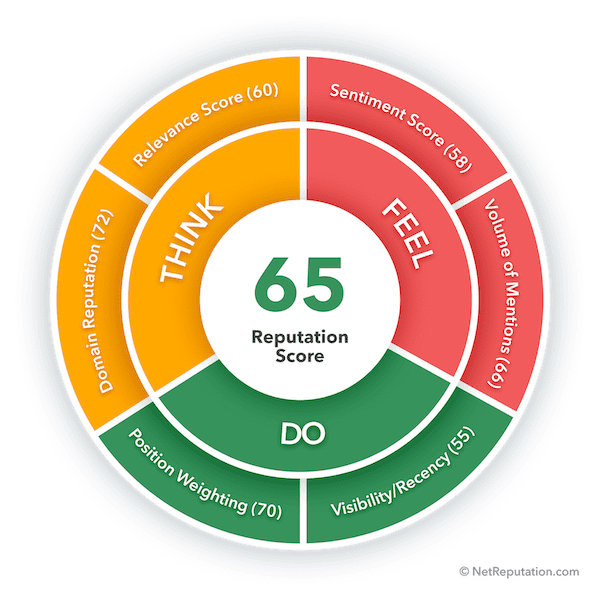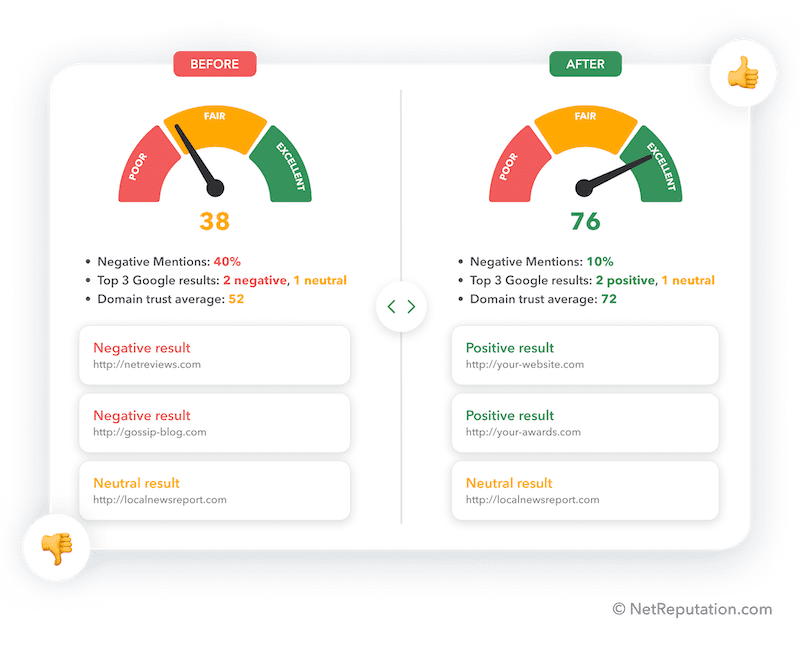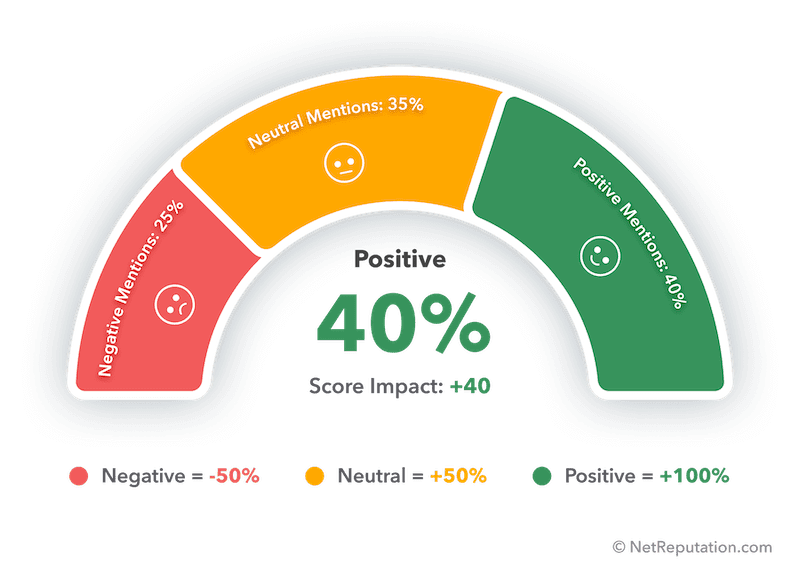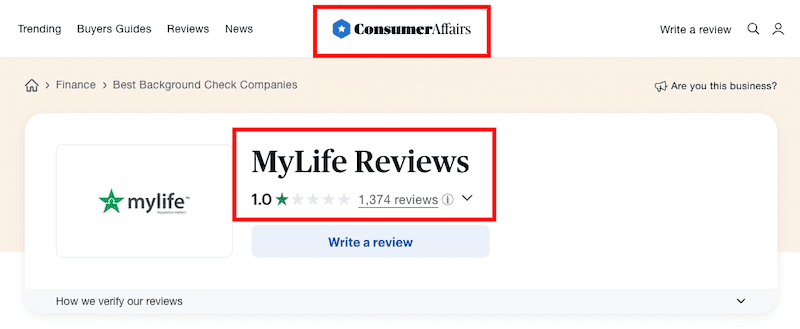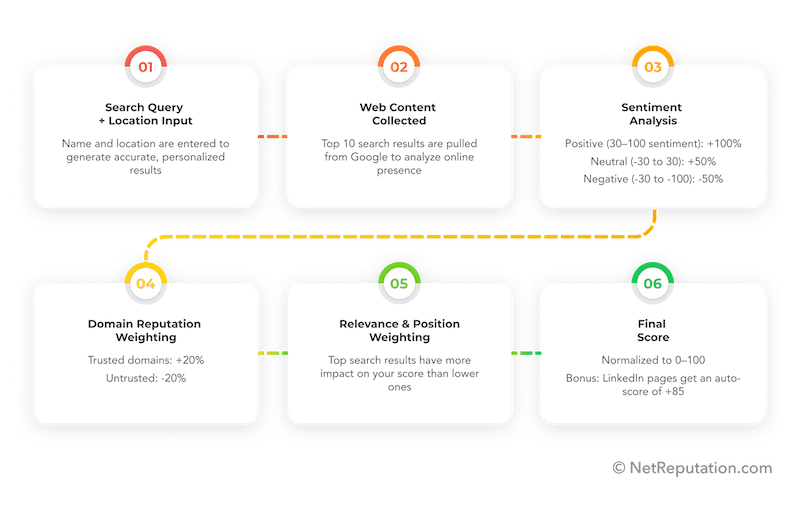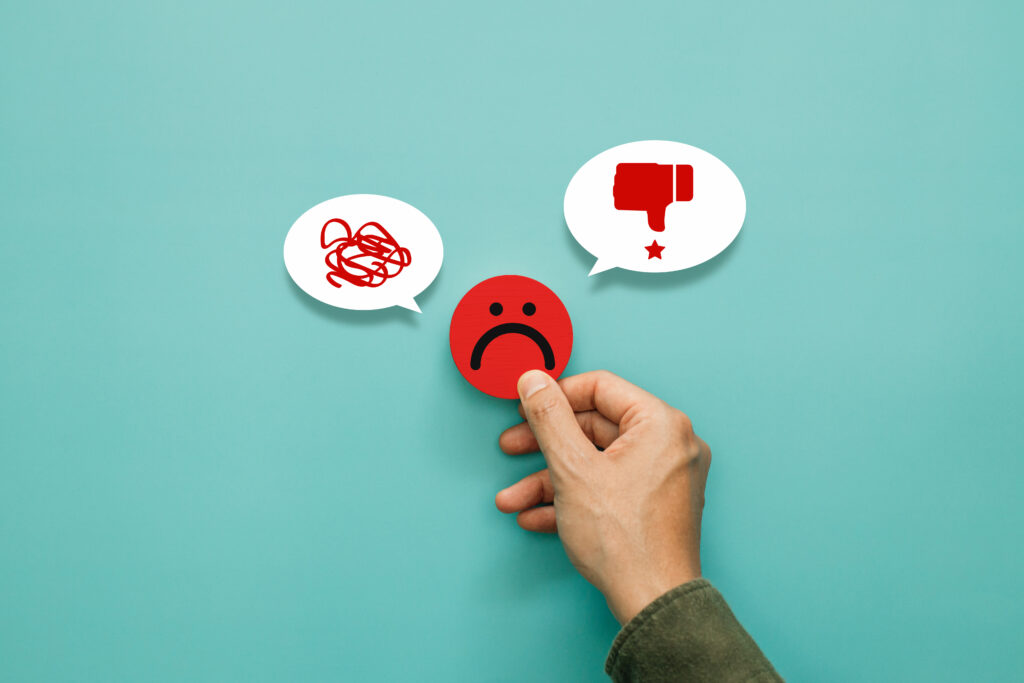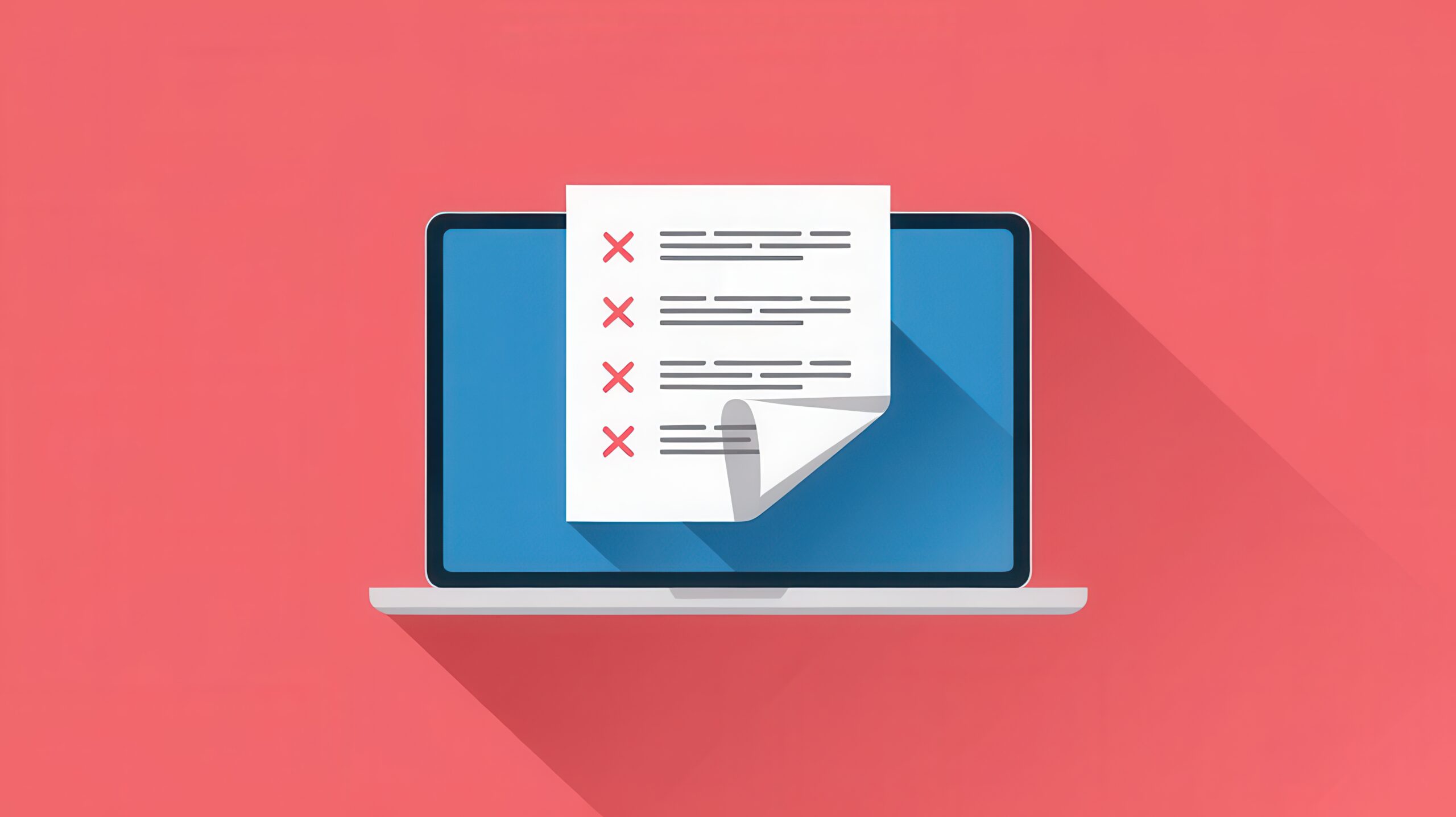What Is a Bad Reputation Score and Why Does It Matter?
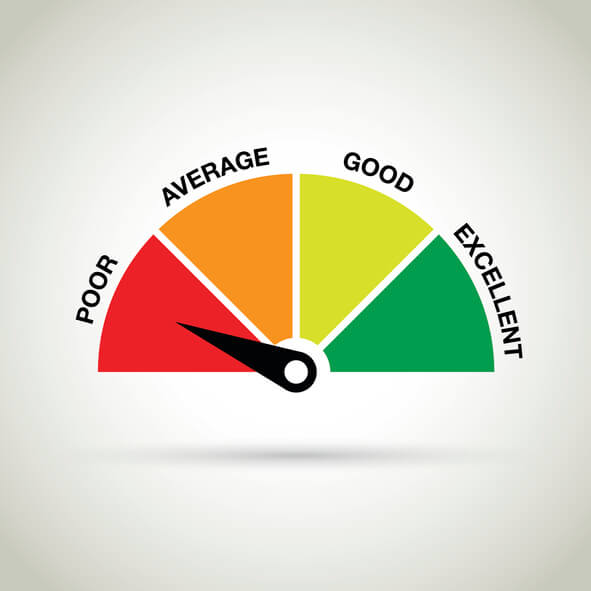
What is a bad reputation score? If your reputation could use a pick-me-up, we can help.
In today’s day and age, most of our personal information can be readily found online, allowing anyone we meet to form opinions of us. And most people agree that their overall reputation in the digital world is important.
You want to know that other people regard you in high esteem. That’s why it pays to know whether or not you have a poor reputation score and how it can affect you.
Many people are alarmed to discover, often by accident, that they have a poor reputation score online. Once they make that discovery, all they can really focus their attention on is how to make things right and remove the negative information about them from the web.
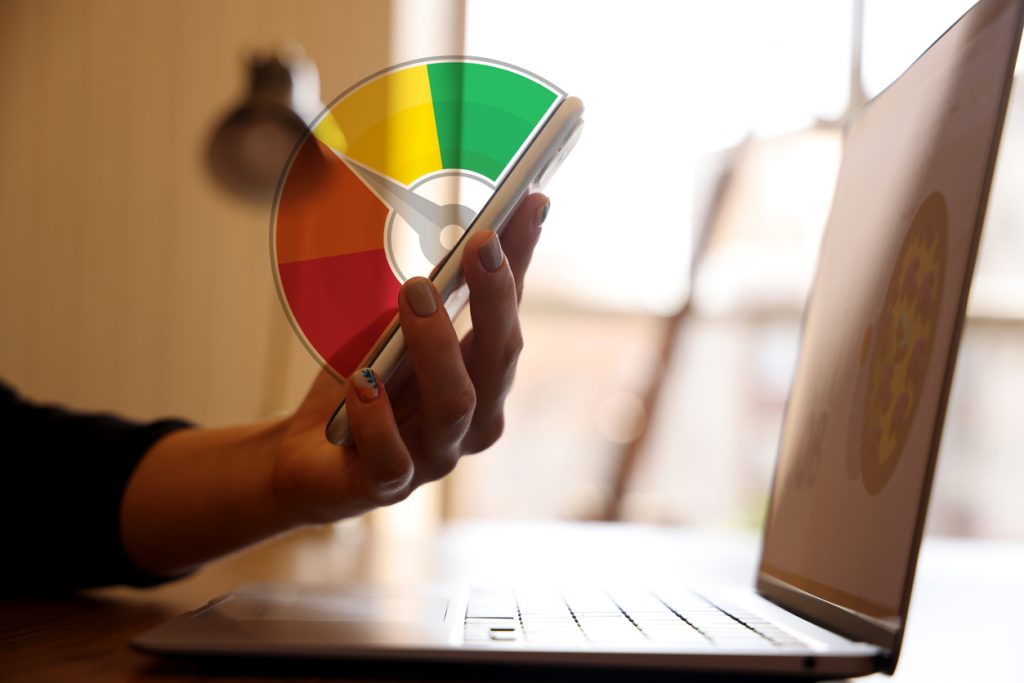
The more you understand about reputation scores, what they really mean, how they are determined, and what you can do about a less-than-desirable reputation score, the better prepared you’ll be to deal with your situation head-on and restore your reputation or the reputation of your business.
The sad truth is that whether you have a large Internet footprint or not, the odds are good that you do have a reputation score. Unfortunately, what you don’t know about your reputation score can hurt you, including causing damage to your professional reputation and hurting your business.
This is why managing your brand online is critically important in the information age. Even if you’re not aware of negative reviews and reports about you, they could be lurking in the far corners of the internet, doing mountains of damage to your reputation, your business, and your standing in the community.
You can analyze and improve your online reputation today with our free Reputation Score Calculator.
What Is a Reputation Score?
Ultimately, your reputation score, or the reputation score of your business, is a compilation of public and private information about you or your business that is available through various entities via the Freedom of Information Act, as well as through other online resources.
Different organizations place weight on different information when assigning reputation scores. They also use different scoring systems to determine a bad versus a good reputation.
It’s in your best interest to know what your reputation scores are with various scoring agencies.
If you have a negative reputation score, you’ll want to make strides to remove the information that’s dragging it down. Whether it’s about you or your business, you don’t want it floating around online and impacting search rankings for your name.
Fortunately, there are usually steps you can take to change your reputation score. It will take a fair amount of work to do yourself, or you can hire a reputation management agency to do the heavy lifting on your behalf.
The benefit of hiring an agency to help is that they will continue to monitor your reputation and manage other negative reputation issues that arise in the future.
Get your free reputation score here and call us at 941-259-4554 to speak with an expert about improving your overall reputation score.
What Is a Negative Reputation Score?
Many individuals and businesses don’t even know they have a negative reputation rating online.
You’re most likely a busy person, and your attention goes to more pressing to-dos, such as:
- Living your life
- Running your business
- Working to get ahead
- Going to school
- Taking care of your children
You may not even know what’s happening on various websites that are dedicated to harvesting and mining information about you. You may not even know these websites exist or how they can negatively affect your online presence.
There are many websites that assign reputation scores to random individuals that are based on nothing more than information they’ve gleaned from public records databases. Moreover, it’s nearly impossible to have a high reputation score when there is negative information about you found online through social media mentions, online reviews, public records, and other mediums.
The more negative materials found about you, the worse your reputation score becomes.
Here’s the kicker: The information doesn’t have to be accurate or true to impact your reputation score in a negative light. It simply needs to exist on the web today.
That is why reputation management needs to be a critical concern for you if you are thinking of changing jobs, going back to school, applying for a promotion, getting a post-graduate degree, or even using an online dating app to meet people.
We can help you attain a positive reputation score, even if you’re starting from zero or rebounding from reputational damage. Call us at 941-259-4554 for more information.
Who Determines Online Reputation Scores?
There are many different agencies and organizations that provide you with an online reputation scorecard. Some of them are more open about it than others. Organizations like MyLife are the most prominent. Even some social media platforms assign reputation scores to prolific users based on their use and various other super-secret details.
One of the problems with MyLife, though, is the sneaky method they use to try to get people to pay for their services by implying that people have negative reputation scores or bad online reputations when that isn’t necessarily true.
In fact, MyLife has faced legal issues based on its business practices, misleading billing policies, inaccurate background reporting, and violations of the Fair Credit Reporting Act.
The problem is that when the organizations assigning reputation scores, like MyLife, have negative reputations themselves, it’s hard to trust that they will provide accurate scores for users. Unfortunately, many consumers take them at their word and assess your reputation according to these untrustworthy scores.
That means you must be diligent in finding out who is reporting your information and what they are reporting whenever possible. Unfortunately, there are many services out there that engage in these practices. It can be almost too much for one person to keep up with, especially when you’re dealing with various other important aspects of your life.
The more you know, though, the more steps you can take to limit the information available about you online. Particularly, you want to get rid of negative information and false information that can damage your reputation.
Our clients come to us when they need to encourage reviews and earn a positive reputation score. Call us at 941-259-4554 to learn more.
How Is Your Reputation Score Calculated?
You’d be amazed at all the information that is used to determine your online reputation and assign you a score. Two primary sources of information are analyzed to create a score for you are:
1. Public Records
- Criminal court proceedings
- Arrest records
- Traffic violations
- Civil court judgments
- Marriage and divorce records
2. Social Media and Web Properties
- LinkedIn profiles and posts
- Facebook profiles and posts
- Instagram profiles and posts
- Reddit profiles and posts
- Personal or business blog content
- Customer feedback
- Social media mentions by other users
Additionally, the online content that might cause dings to your reputation includes posts that promote alcohol or drug use, posts that are overtly sexual, controversial posts or opinions, online bullying, and other statements the determining agency views as negative. Even comments on your posts can have negative consequences when it comes to your online reputation.
What Does a Poor Reputation Scorecard Mean for You?

How important is your online reputation score? According to Forbes, 22% of businesses risk losing business from a single negative review. That number increases to 59.2% if there are 3 negative reviews.
It doesn’t matter who you are:
- A business owner
- An individual with a career
- A parent
- A recent college graduate
- A student
Your reputation matters. Because of this, arbitrary reputation scoring systems that operate without your knowledge or permission should be cause for worry.
This is especially true when you have no control over the information being used to determine these ratings or reputation scores. You can’t even verify that the information is accurate or that these organizations have the right to use your name, your image, or your personal details for profit.
More Ways a Poor Online Reputation Can Impact You
Beyond the effect these scores have on businesses, as illustrated above, individuals may face even harsher implications from a negative reputation score. In fact, a negative reputation score online can affect your ability to do the following:
- Get a job
- Rent or buy the home you desire
- Qualify for promotions with your current employer
- Obtain scholastic or performance scholarships
- Get accepted into certain universities or degree programs
In other words, you do not need to own a business in order for your online reputation score to matter. It matters a great deal to people from all walks of life. That is why you need to do more than merely learn about reputation scores — you also need to know how to improve yours.
The better your reputation, the more personal and professional opportunities you’ll have in the future.
What Can You Do About a Negative Reputation Score?
One of the most important things you can do to improve your reputation score is take action. The longer it lingers, the more damage it’s doing to you and your goals. It’s time for you to control the narrative about your reputation rather than leave it to others.
- Clean up your social media presence and address language, images, and other potentially negative information that’s causing harm.
- Address negative online reviews about you or your business. Don’t let them sit unaddressed — that makes it appear to others that you don’t care.
- Set up Google alerts so that you’re notified of any mentions of your name online.
- Develop a positive content and social media strategy to ensure that plenty of good information about you circulates online. You want the good to surpass the negative in search engine results.
- Start a blog or create a website that becomes the lead story about you. Keep it updated with solid information, and watch as negative feedback sinks to the bottom of the search engine results.
Unfortunately, these tactics are time-consuming and quite involved. You may want to leave the work of improving your online reputation to the pros who understand the process and have streamlined it.
Wrapping Up: How To Earn a Good Reputation Score Online
To recap, there are several factors that go into your reputation score and determine whether or not you have a high score, including:
- Positive reviews left by happy customers
- Whether or not you respond quickly to people who leave reviews
- Removing unwanted content from search results
- Your presence on different sites across the web
Knowing what’s causing a low score and the impression people have of you or your business is the first step toward improving your online reputation. And if you’re a business owner who’s working to improve your brand reputation, having more positive reviews can significantly impact your online presence and business listings.
Don’t allow yourself to drown in a sea of negative information associated with a poor reputation. Fight back by taking control of your online reputation today.
Start by finding out your reputation score right now with the help of our free calculator. Then, give us a call at 941-259-4554 to speak with an expert.
